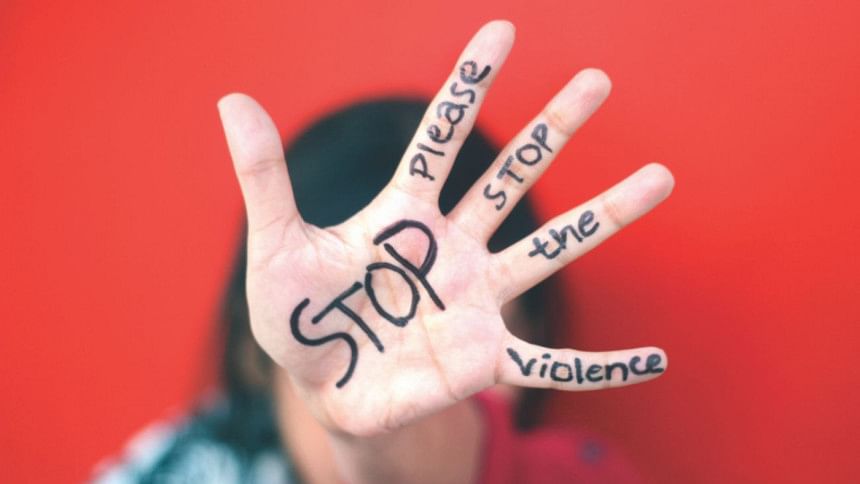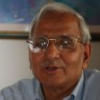Which way to social harmony?

The cycle of violence that began on January 5 is still continuing. So far over 120 people have died, 66 of them by petrol bomb. Killing people by throwing petrol bombs is a heinous act and must be stopped immediately. The law enforcement agencies must identify, arrest and bring the perpetrators to justice. At the same time, they must also stop extra-judicial killing and abuse of their power to arrest.
It is the responsibility of the government to maintain public order and provide safety and security to the citizens. We hope the authorities will be successful in bringing an end to the present cycle of violence and achieve social harmony. Lack of social harmony has its costs. Disharmony is reflected in discord, disunity and conflict. Conflict may lead to violence, and unchecked and sustained violence may end up causing havoc.
On the other hand, the maintenance of social harmony has its dividends. One of the dividends is the creation of 'social capital.' Social capital, as distinct from financial capital, is formed when people of all walks of life in a society work shoulder to shoulder, and it can complement financial capital. Creating social movements and social resistance by uniting people can effectively solve many social problems.
Normally disharmony, conflict and violence in a society originate from two sources -- identity-based prejudice and political rivalry. Many societies have people of different and distinct ethnicities, nationalities, races, religions, castes and languages. Such differences are the basis of a pluralistic society. It is clear that identity-based diversity in a society is a reality. Dealing with such a reality requires molding social attitudes to combat prejudice. Such attitudinal changes can be achieved by various interventions, including creating champions to promote social harmony. It also requires concrete and effective measures for inclusion of the excluded in the social, economic and political processes. Ensuring justice for the downtrodden is another means of promoting social harmony. As Martin Luther King said: "Peace is not absence of violence, but the presence of justice."
Conflicts and consequently violence also often originate from extreme political rivalry. In a society where people in power can loot and plunder with impunity, an all-out competition prevails among political parties to be in power. Such competition to capture power at any cost often leads to violence. Thus, fostering and maintaining social harmony requires avoiding unnecessary conflicts among political rivals. But unfortunately the mindless politics of Bangladesh has divided the country, which was united at its birth, into two 'warring camps.'
It should be noted that sometimes there are linkages between politics, power and identity-based violence. Powerful politicians and rulers often exploit identity-based differences among people for their own selfish ends. Sometimes politically powerful groups promote religious and ethnic conflicts and violence to dispossess the vulnerable of their lands and other immovable possessions. In Bangladesh, we have many examples of such economically motivated violence against minorities.
To understand and mitigate political violence, one needs to make a distinction between policies and fundamentals relevant to a nation-state. It is normal that political parties will have differences in policies. Such differences in policies are usually the reflection and affirmation of a pluralistic society.
However, political parties are expected to have consensus on certain fundamentals. Political parties may agree to a minimal consensus, such as showing mutual respect and tolerance, and practicing democratic values and norms. Mutual respect and tolerance keep the communication channel between political rivals open and allows dialogues and discussions to resolve contentious issues. It also allows reasonable voices and moderates to play constructive roles to avoid conflict and violence. Needless to say that when moderates are silenced extremists take over. Unfortunately, in Bangladesh, our major political parties have little respect and tolerance for each other. Nor do they practice democratic norms.
The wider the areas of consensus on fundamentals in a society, the stronger is its foundation and lower is the prospect of debilitating political conflicts and violence, which can tear a society apart. Thus, achieving social harmony requires expanding the range of consensus among political rivals. It requires reaching a new consensus on fundamentals if the original consensus, reflected in the country's Constitution, breaks down.
In Bangladesh, the original consensus, contained in our 1972 Constitution, was violated time and again by convenient amendments, especially by the 15thAmendment, which unilaterally changed about a third of our Constitution, including some of its 'basic structure.' In fact, the 15th Amendment, by abolishing the provision of the caretaker government, subverted the process of peaceful transfer of power. With such subversion of peaceful transfer of power, we may not, unfortunately, have peace in the country in the foreseeable future. Thus, to achieve sustainable social harmony in our country, we need to develop new consensus on constitutional issues, including on the issue of peaceful transfer of power in the future.
It should be noted that there is an intimate relationship between poverty and violence. If we look around the world, we find that violence is more prevalent in poorer countries, and the poor are the overwhelming victims of such violence. In fact, poverty and violence go hand in hand and they affect each other. Thus, Gary Haugen and Victor Boutros, in their bestselling book, The Locust Effect (Oxford University Press, 2014), eloquently argue that the end of poverty requires the end of violence.
We have found through our own experiences that improving the socio-economic conditions of the people can also prevent violence. Broad-based socio-economic development can transcend identity-based differences among people.
To conclude, political violence has become a serious problem in Bangladesh, which is threatening the stability of our social, economic and political systems. Our democratic process is now in serious danger because of continuing violence. Combating this persistent violence and maintaining social harmony in a sustainable way would require political settlement through confidence building, dialogues and discussions to reach consensus on broad ranges of fundamental issues, including constitutional issues.
The writer is Secretary, SHUJAN: Citizens for Good Governance

 For all latest news, follow The Daily Star's Google News channel.
For all latest news, follow The Daily Star's Google News channel. 



Comments